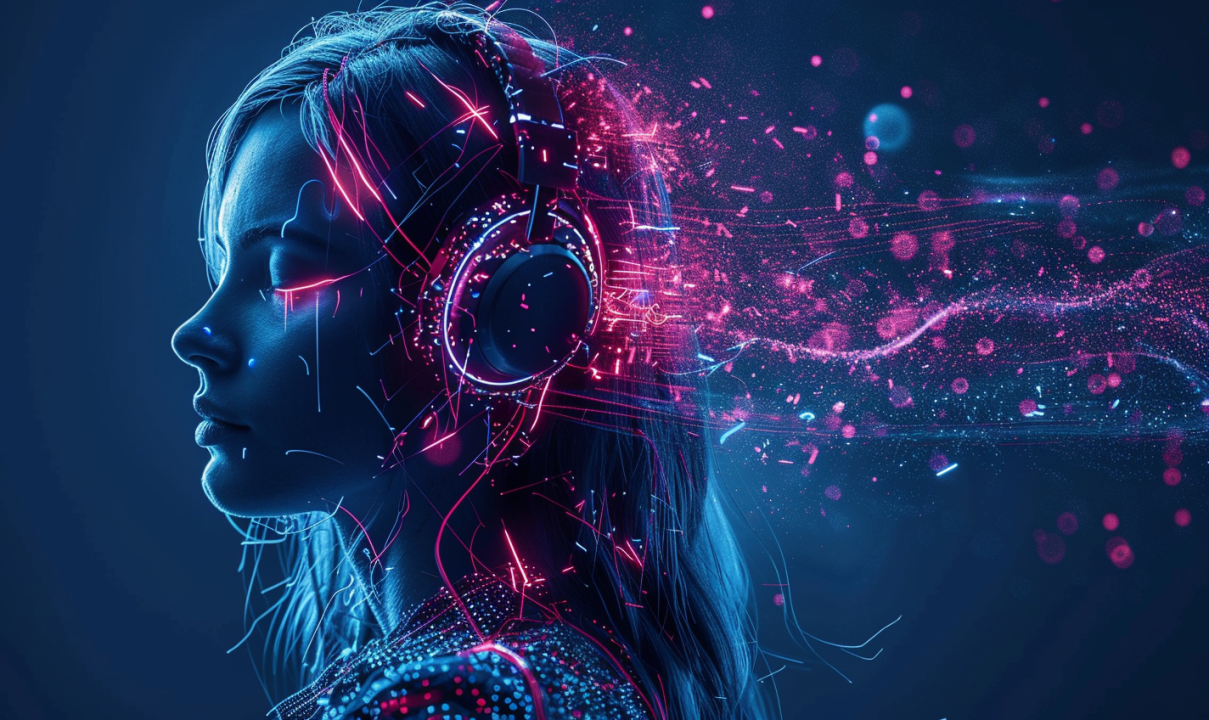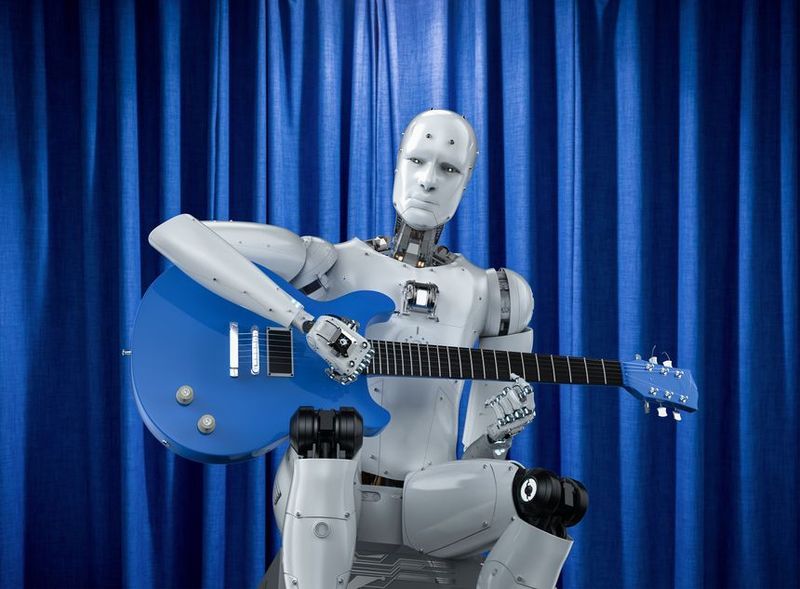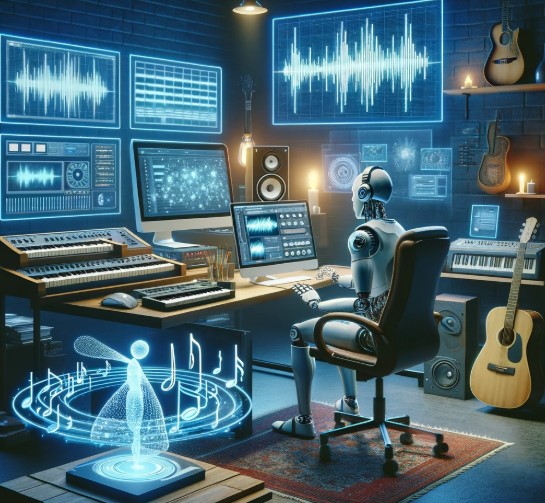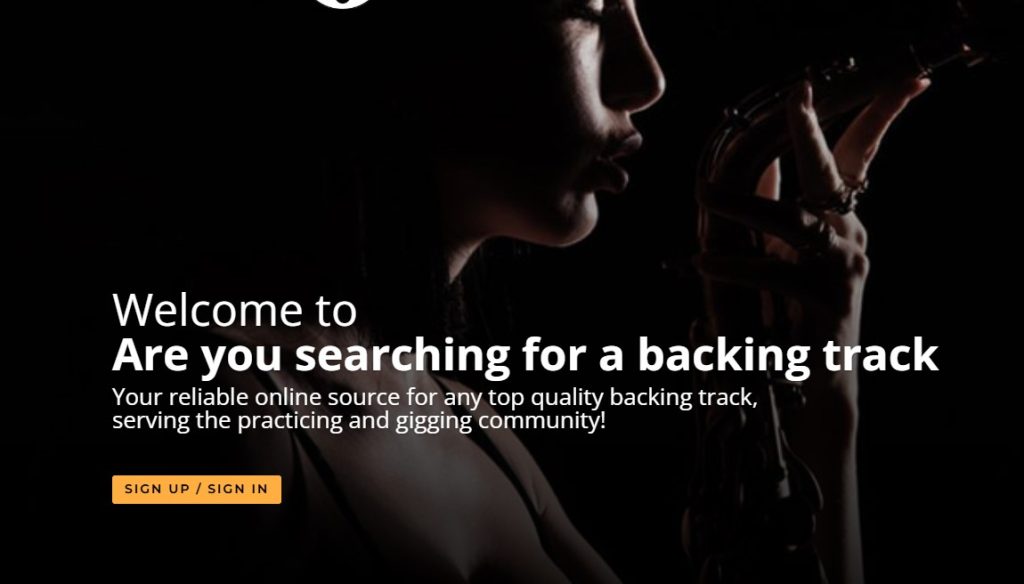
The AI in the Studio: A New Instrument, Not a Replacement for the Soul of Music
Our newest member , a Backing track specialist , a real musician and concerned citizen illustrated to me this week the challenge from the technological musical influence coming from AI. So I decided to look into the effect AI is having on the musical world.
The headlines are impossible to ignore: “AI Generates a New Beatles Song!” or “This Pop Hit Was Co-Written by an Algorithm!” In an industry constantly being reshaped by technology, from the synthesizer to Auto-Tune to digital streaming, Artificial Intelligence is the latest and perhaps most profound disruptor to take the stage. For musicians, producers, and music lovers, it’s natural to feel a pang of anxiety. Is the art form we love about to be automated? Will the unique spark of human creativity be rendered obsolete by lines of code?
The short answer is: not yet, and likely not ever in the way we fear.
While AI is undoubtedly a powerful new tool that is changing how music is made, it is far from replacing the heart, soul, and nuanced skill of a human musician. For artists and creators, especially those who rely on the foundational power of great songwriting and performance—the very clients who use professional backing tracks—this technological shift is less a threat and more an opportunity. Here’s why.

How AI is Actually Being Used in Music Today
To understand why AI isn’t the bogeyman, it’s crucial to look at what it’s actually doing. AI in music isn’t a sentient composer in a room writing a masterpiece from scratch. Instead, it’s being used as a sophisticated tool in very specific ways:
- Assistive Composition: Tools like OpenAI’s Jukebox or Google’s Magenta can generate melodic phrases, chord progressions, and even drum patterns. A songwriter stuck in a rut can prompt an AI with a genre and mood, and it might spit out a dozen interesting chord sequences to build upon. It’s a high-tech muse for overcoming writer’s block, not the writer itself.
- Sound Design and Processing: AI-powered plugins can analyze audio and apply complex processing that would take hours to do manually. They can “listen” to a vocal track and intelligently suggest optimal EQ, compression, and de-essing settings. This automates the technical grind, freeing up the engineer to focus on the creative mix.
- Mixing and Mastering: Services like LANDR and iZotope’s Neutron use AI to provide automated mastering, making professional-sounding audio more accessible to bedroom producers. This is a democratizing force, but it doesn’t replace the critical ear and intentional artistic choices of a seasoned mastering engineer aiming for a specific, unique sound.
- Sample Generation and Beat Making: AI can create endless, royalty-free drum loops, synth pads, and instrumental samples. This is a boon for producers looking for fresh sounds without sifting through endless sample libraries.
In essence, AI is currently at its best as a collaborative tool and a powerful assistant. It handles the mundane, generates raw material, and suggests possibilities. But it lacks the one ingredient that has always been at the core of great music: intent.

The Unbridgeable Gap: Where Human Musicianship Reigns Supreme
A computer algorithm can analyze every Top 40 hit from the last 50 years and learn the mathematical patterns that make them successful. It can replicate structure, harmony, and even timbre. But what it cannot replicate is the human experience that fuels authentic artistry.
- Emotional Intent and Storytelling: Music is more than just pleasing frequencies; it’s a vessel for human emotion. A song is born from heartbreak, joy, political anger, or personal triumph. An AI has never felt the sting of a lost love, the warmth of a summer day, or the weight of the world. It can only mimic the symptoms of these emotions based on its training data. The raw, vulnerable storytelling in an artist like Adele or the gritty social commentary of a Kendrick Lamar comes from a lived life, not a dataset.
- Imperfections and “Feel”: What makes a guitar solo by David Gilmour or a vocal performance by Aretha Franklin so transcendent? It’s the subtle vibrato, the slight bend of a note, the micro-timing that pushes or pulls against the beat—the so-called “soul.” These are human imperfections that algorithms, designed for precision, actively filter out. This “feel” is the fingerprint of a musician, and it’s irreplaceable.
- Cultural and Social Context: Music exists within a cultural moment. It responds to and shapes the world around us. AI is inherently backward-looking, trained on what has already been created. It can’t spearhead a new movement like punk or hip-hop; it can only create a pastiche of them after the fact. Human artists are the pioneers.
The Backing Track Connection: Your Canvas is More Valuable Than Ever
This is where your craft as a musician becomes more critical. Professional backing tracks are not AI-generated loops; they are meticulously crafted musical landscapes. They are the foundation—the canvas—upon which a vocalist or lead guitarist paints their masterpiece.
Think of it this way: AI can generate a generic, algorithmically “perfect” canvas. But a professional backing track from a skilled provider is a hand-stretched, gesso-primed canvas prepared by an artisan. It has depth, texture, and a specific character designed to make the artist’s performance shine.
In a world flooded with AI-generated content, the demand for authentic, high-quality, human-created music will skyrocket. Listeners have an innate ability to detect soullessness. When AI saturates the market with competent but emotionally vacant music, the value of a powerful, human-delivered vocal performance over a rich, dynamic, and human-composed backing track will be undeniable. Your unique voice, your expressive guitar solo, your heartfelt lyrics—that will be the differentiator.
The Future is Collaborative, Not Catastrophic
The narrative shouldn’t be “Musicians vs. AI.” The more realistic and empowering future is “Musicians with AI.” Just as synthesizers didn’t replace orchestras but created entirely new genres, AI will become another instrument in the toolbox.
Use AI to brainstorm a chord progression when you’re stuck. Use it to master your final demo. But then, take that raw material and pour your humanity into it. Use your skills to craft a memorable melody, write lyrics that mean something, and deliver a performance that connects.
Your livelihood isn’t threatened by a tool; it’s enhanced by your ability to use that tool while mastering the irreplaceable elements of your art. The core of music—connection, emotion, and storytelling—remains a profoundly human domain. So, keep practicing, keep writing, and keep performing. The world still needs, and will always need, the soul you bring to the song. And that’s something no algorithm can ever replicate.
Trust your heart and know the human musician plays the emotional vibes that relate to your ears and well life is short why waste it on artificial music try Bobby’s music tracks





